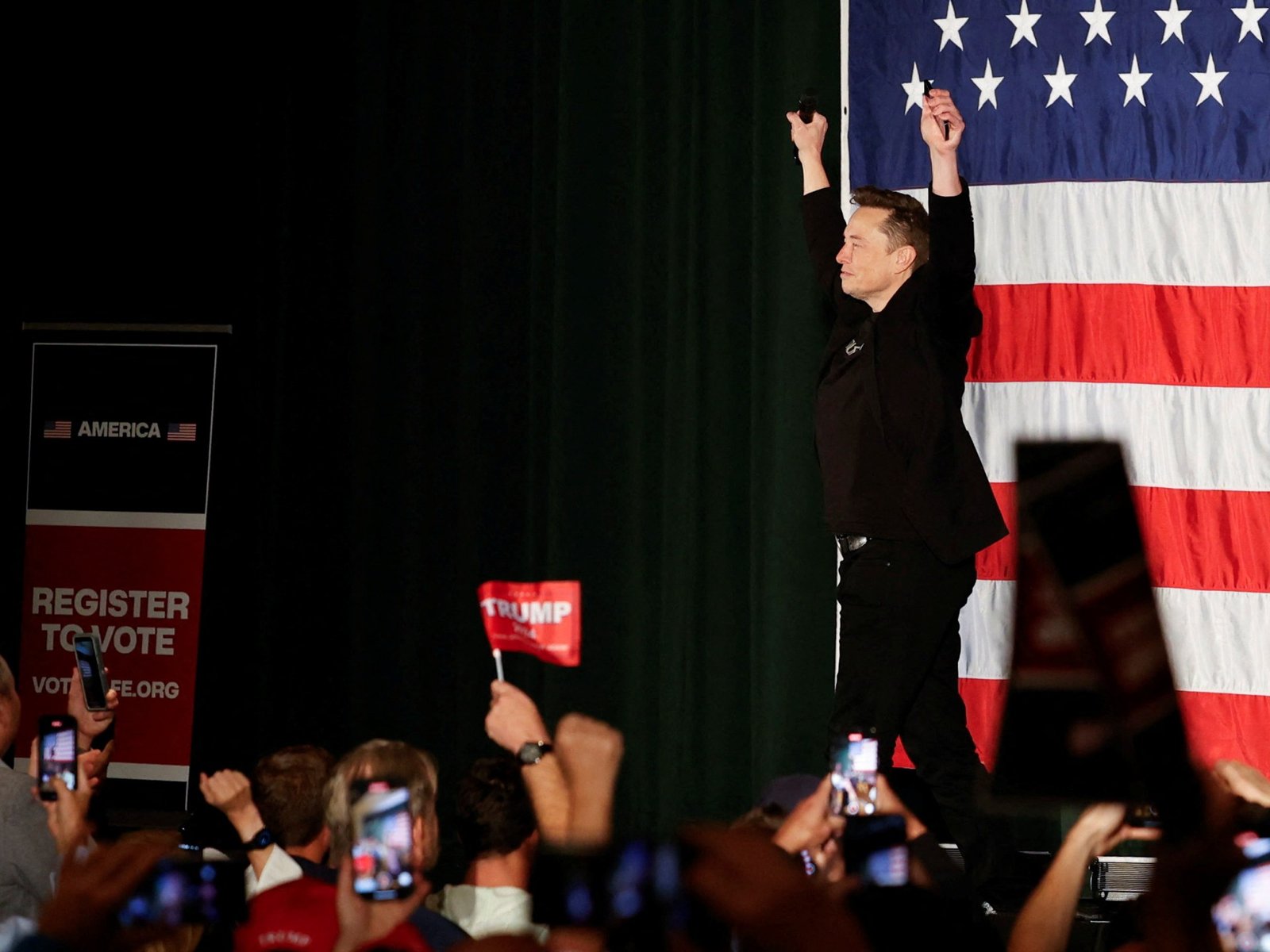Billionaire Elon Musk Launches Controversial Million Lottery for Voters Amid Election Concerns
By Louis Jacobson | USA Zine
Published On 23 Oct 2024
In a move that has ignited significant debate across social media platforms, billionaire entrepreneur Elon Musk announced this week the initiation of a million daily lottery aimed at registered voters in key battleground states. This initiative encourages participants to sign a petition advocating for free speech and support for the Second Amendment.
Supporters of Musk have hailed the initiative as an innovative means of engaging voters, particularly in pivotal states such as Arizona, Georgia, Michigan, Nevada, North Carolina, Pennsylvania, and Wisconsin. Participants must be registered to vote in these states to qualify for the lottery. Reports indicate that Musk’s political action committee (PAC) has already disbursed the first two million checks to Republican voters who opted for mail-in ballots.
However, the proposal has been met with scrutiny. Critics are raising legal questions regarding the implications of such a lottery. Pennsylvania’s Democratic Governor Josh Shapiro noted on NBC’s “Meet the Press” that this initiative “could warrant further investigation by law enforcement.”
Election law experts, including Richard Hasen from the University of California, Los Angeles, have pointed to potential violations of federal law, specifically 52 USC 10307(c), which effectively prohibits the payment for voter registration or voting. Advocacy group the Campaign Legal Center, a strong supporter of voting rights, further reiterated that such actions could undermine democratic processes and could potentially invite legal repercussions for Musk.
Despite the legal complexities, many experts suggest that prosecution is unlikely, particularly before the imminent Election Day in 2024. The enforcement of these laws may fall under the jurisdiction of either the Federal Election Commission (FEC) or the Department of Justice (DOJ), although the FEC has faced challenges in effectively pursuing such matters due to partisan divisions.
Jerry H. Goldfeder, a prominent legal expert, explained that while the FEC can assess potential violations, the process is often prolonged. Even the DOJ would face hurdles in deciding whether to move forward with a case, as prosecutorial authority generally emphasizes significant resource commitments against uncertain outcomes.
Historically, such cases have shown low probabilities of prosecution, with many legal scholars indicating that the minimal deterrent effect often discourages the Justice Department from advancing. The decision to pursue action could also be influenced by the political landscape following the upcoming election, potentially hinging on the administration that emerges victorious.
In an ever-evolving electoral environment, Musk’s lottery initiative reflects a unique intersection of technology, finance, and governance. As voters gear up for the 2024 presidential election, the implications of this initiative continue to unfold, emphasizing the delicate balance between incentivizing participation and upholding the integrity of the electoral process.
#Politics #USElectionsNews

